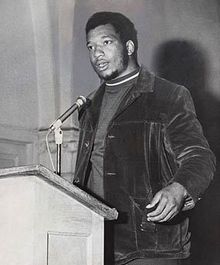A Quote by Murray Bookchin
In the 60s there were a lot of things which were anarchistic. May-June '68 was riddled by anarchistic sentiments, dreams and ideals, but insofar as this was not strengthened organizationally and intellectually by a very effective, powerful infrastructure, then what happens is the movement becomes dissipated.
Related Quotes
The life before '68 was very different from the life after '68. Before '68, our days were full of authoritarian moments. There were authorities everywhere. In fact, the movement of '68 was young people against their authorities, children against their parents. And that remained. The most important thing of all, the thing that lasted, was the first feminist movement and the position of women in society. That completely changed and that was very, very important.
For me, the anarchy movement is hilarious. It's all under .org, which is of course government sponsored websites, and then they're all wearing corporate clothing from the Dr.Martin's to the back sacks and the cell phones, they're all flying around on corporate jets and using corporate highways. Very anarchistic!
In the thirties a whole school of criticism bogged down intellectually in those agitprop, social-realistic days. A play had to be progressive. A number of plays by playwrights who were thought very highly of then - they were very bad playwrights - were highly praised because their themes were intellectually and politically proper. This intellectual morass is very dangerous, it seems to me. A form of censorship.
Coming from a sort of very rigid European type of training to this culture which is just a little more open - a lot more open, and kind of curious, and asking different sorts of questions.Because the problem for me was that the European modernist movement in the '70s was all about right or wrong. Some things were right and you were dealing with the truth, as it were, and then some things were wrong and therefore not allowed.
In the '60s and '70s it was a great period for American films because studios were still run by individuals who worked off the seat of their pants and went along with things. At that time, they were very uncertain about what to make because of the influence of television. A lot of really terrific movies were made. But then the studios gradually became more corporate and were owned by corporations and run in that way and now they're very nervous. You see what they make - sequels, franchises and try not to take risks.
When I began writing poems, it was in the late 60s and early 70s when the literary and cultural atmosphere was very much affected by what was going on in the world, which was, in succession, the civil rights movement, the antiwar movement, and the women's movement in the 60s, 70s, and into the early 80s. And all of those things affected me and affected my thinking, particularly the Vietnam War.
Yes, the '60s went too far, but we were trying to find new ways, better ways, to do things. And great seeds were planted: civil rights, the peace movement, the environmental movement, feminism. They're big seeds. They take a long time to come to fruition. Please, let's stop fighting, and get out our water cans.



































